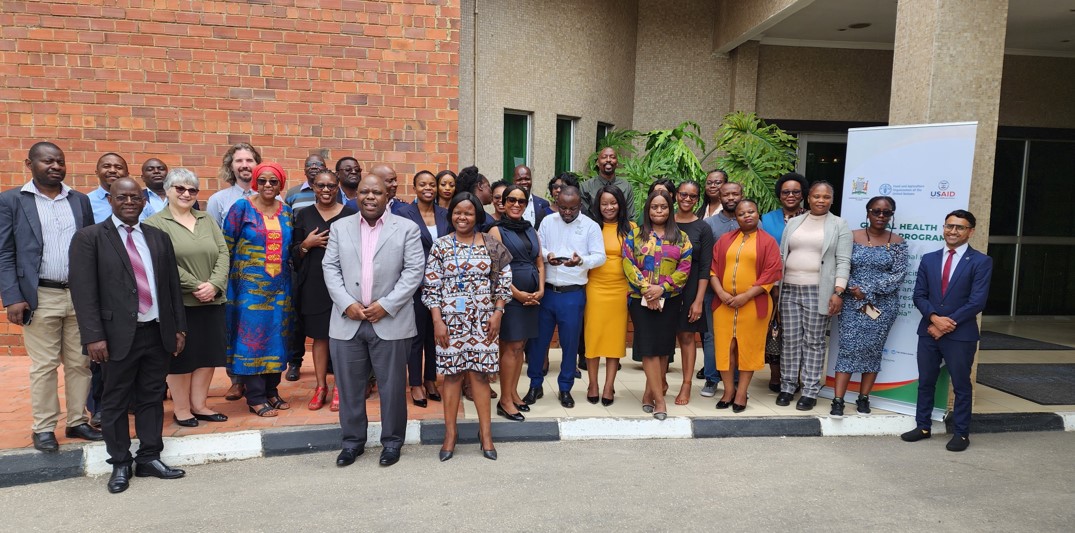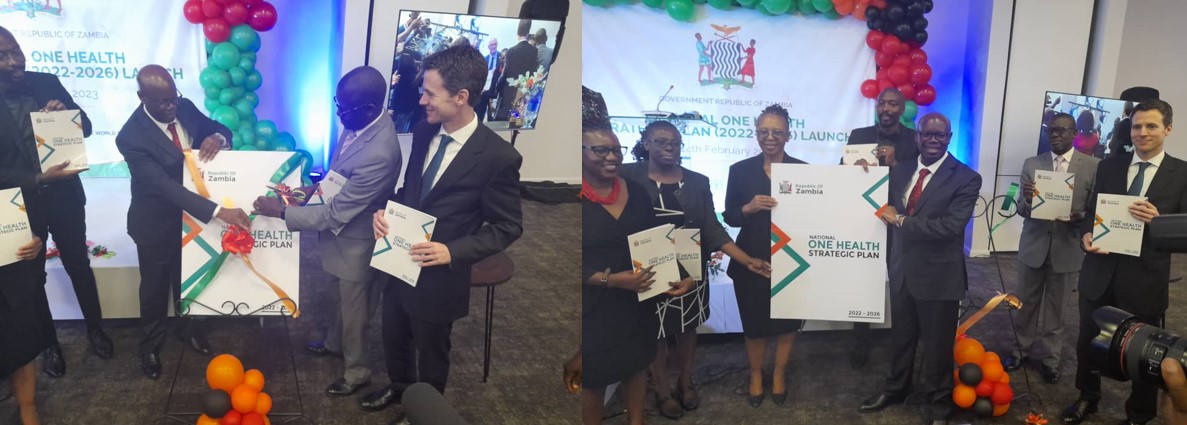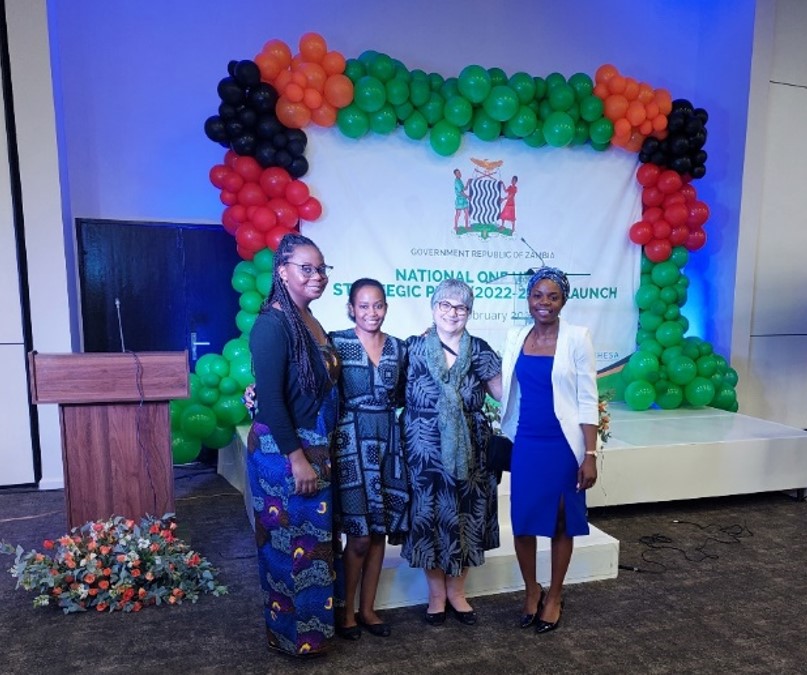
The UKHSA One Health (OH) team, as valued partners in the development of the National One Health Strategic Plan (OHSP) for Zambia, were invited to attend the OHSP launch in Lusaka organised by the Zambia National Public Health Institute (ZNPHI). The trip was also an opportunity to visit colleagues at ZNPHI and work closely with the in-country Zambia IHR Strengthening team.

On 14th February, prior to the launch, a meeting of the OH Technical Working Groups (TWGs) was held. Both events were organised collaboratively by ZNPHI, United States Agency for International Development (USAID), Food and Agriculture Organisation (FAO), World Health Organisation (WHO) and UKHSA. The day began with an introduction and overview of the role of the TWGs and how their roles aligned with the OHSP provided by Dr Raymond Hamoonga (OH Specialist, ZNPHI). The TWGs are composed of technical representatives from various ministries, non-governmental organizations, and strategic partners. They cover five thematic areas that are specified in the OHSP: Governance and Coordination; Surveillance; Preparedness and Response; Advocacy, Communication, and Training; and Research.
The participants were then split into five groups where representatives from human health, animal health, environmental health and strategic partners discussed and developed a draft Terms of Reference (TORs) document for each TWG. This involved discussing the role of the TWG, their aims and objectives, membership and meeting frequency. The groups then reconvened and representatives from each TWG presented their TORs back to the wider group for appraisal and challenge. The meeting was formally closed ahead of the launch event later in the evening.
In the evening, the National OHSP launch began with a welcome address by Acting ZNPHI Director Ms. Mazyanga Mazaba, who highlighted the importance of the launch of the OHSP and the need for a OH approach in Zambia to safeguard the country’s public health. She emphasised the importance of a collaborative approach to OH implementation with various stakeholders. Dr Raymond Hamoonga then gave a brief overview of the journey of OH in Zambia to date and the current status of OH implementation highlighting key events in the lead up to the launch such as the International Health Regulations – Performance of Veterinary Services (IHR-PVS) National Bridging Workshop held in October 2022. He also highlighted planned OH activities in the short-term such as Zoonotic Disease Prioritization and a Multisector Coordination Mechanism workshop. Subsequently there were speeches from Mr Geoffrey Chomba (FAO Country Representative), Dr Nathan Bakyaita (WHO Country Representative), Mr Peter A. Wiebler (USAID Head of Mission) and HE. Nicholas Woolley (UK High Commissioner to Zambia). The speeches highlighted the significance of the milestone OHSP launch, communicated their continued support for the advancement of OH in Zambia and importance of this work to prevent future pandemics.
There was attendance from the Permanent Secretary from the Ministry of Fisheries and Livestock and the Permanent Secretary from the Ministry of Green Economy and Environment. Professor Lackson Kasonka, the Permanent Secretary from the Ministry of Health gave the keynote speech of the evening covering commitment and sentiments from all three ministries. He emphasised the importance of a OH approach in tackling emerging infections with zoonotic origin, the rise of antimicrobial resistance and the risk of disease due to international travel in the region. He also mentioned how operationalising OH would tackle these issues and assist towards fulfilling the global health security agenda.
After the speeches, there was the official launch and ribbon cutting by the ministerial representatives and senior stakeholders.

The OHSP is a five-year strategic plan running up to the end of 2026 and includes and implementation plan for year one. It was jointly developed with the Department of Veterinary Services (DVS) in the Ministry of Fisheries and Livestock, the Ministry of Health, the Ministry of Green Economy and Environment, the Ministry of Local Government and Rural Development, Academia, development partners, the private sector as well as non-governmental organisations. The plan addresses identified gaps in the WHO Joint External Evaluation (JEE) and indicates the commitment to enhance multi sectoral collaborations in addressing public health events at the human-animal-environment interface.
Overall, it was a very well organised and run event marking a significant milestone in the development of a OH Approach in Zambia. Many thanks to the in-country Zambia UKHSA team for their hard working making this a success.

By Lukeki Kaindama and Bengü Said